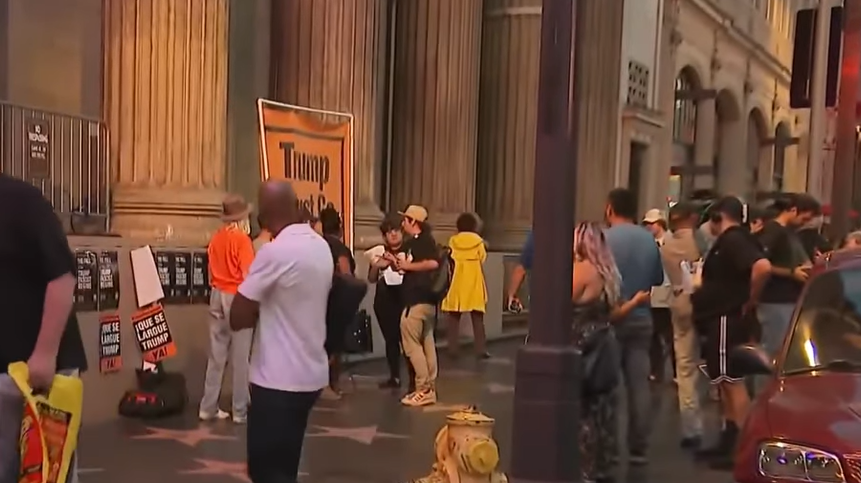Following Disney’s suspension of Jimmy Kimmel Live! due to political pressure, calls for an ABC boycott quickly grew, dividing viewers. For individuals looking for ways to boycott ABC, the solution is remarkably similar to previous boycotts of Netflix or Bud Light: individual acts are most effective when they are magnified collectively. Beginning with the discontinuation of Disney-affiliated services, the strategy progressively affects advertisers and merchandise, causing repercussions in terms of money and reputation.
A highly successful strategy is to terminate Disney’s bundled platforms, like Hulu, ESPN+, or Disney+. Disney finds these bundles to be an especially lucrative source of income, and abandoning them would be a direct threat to the corporate framework that protects ABC. Additionally, viewers target Hulu + Live TV, which is closely related to ABC’s broadcast offerings, so cancellations have both a financial and symbolic impact.
Advertiser boycotts are equally important. History demonstrates how remarkably similar tactics changed business practices, from networks losing sponsors during civil rights demonstrations to contemporary campaigns that forced companies to steer clear of contentious shows. By refusing to purchase goods from businesses that run advertisements on ABC, customers effectively pressure the network. Disney is unable to ignore this cascading effect, which forces businesses to balance the risk to their reputation against their marketing budget.
Table: ABC Network Overview
| Attribute | Details |
|---|---|
| Full Name | American Broadcasting Company (ABC) |
| Founded | 1943 (as a radio network), television since 1948 |
| Headquarters | Burbank, California, U.S. |
| Parent Company | The Walt Disney Company |
| Current President | Craig Erwich (as of 2025) |
| Key Assets | ABC News, Good Morning America, Jimmy Kimmel Live! (suspended) |
| Audience Reach | Over 200 affiliate stations across the U.S. |
| Recent Controversy | Indefinite suspension of Jimmy Kimmel Live! after political backlash |
| Competitors | CBS, NBC, Fox |
| Reference | ABC News |

The boycott is given cultural vitality by the celebrity factor. The suspension was described as “shamefully short-sighted” by David Letterman, while Jason Bateman presented it as an assault on artistic freedom. By connecting this boycott to broader discussions about entertainment freedom, their responses are especially creative and provide momentum. In a similar vein to Taylor Swift’s decision to re-record her masters in order to regain creative control, these interventions show how celebrity voices can greatly magnify popular outrage.
However, boycotts aren’t just for amusement. They highlight the close ties between Disney’s parks, networks, merchandise, and movies. Diluting the protest is avoiding only ABC while still going to Disneyland or purchasing tickets to Marvel. For this reason, a lot of people support a comprehensive approach that targets every Disney revenue source. Because of its extreme adaptability, this strategy can transform a boycott focused on a single issue into a larger movement for accountability in several areas.
Additionally, digital activism is crucial. Facebook and Reddit communities provide detailed instructions on how to cancel Disney bundles, boycott ABC, and put direct pressure on advertisers. This approach generates viral movements that become well-known almost immediately and is much quicker than traditional organizing. The extent of the boycott is noticed by investors, who are highly accurate gauges of corporate anxiety, as Disney stock trembles in reaction to unfavorable headlines.
It is the cultural symbolism of this conflict that seems especially urgent. Late-night television dominated American comedy and commentary for decades, using satire and wit to influence political discourse. Kimmel’s dismissal highlights how brittle artistic autonomy has become when weighed against business agreements and government approval. The blacklisting of Hollywood during the McCarthy era is reminiscent of past instances where voices were suppressed by outside forces.
The opposition is strengthened by labor unions. The suspension was condemned by SAG-AFTRA and the Writers Guild of America as an insult to artistic freedom. Particularly in light of recent strikes in which workers won new contracts by banding together, their remarks have a profound impact. In the same way that those acts were incredibly successful in changing Hollywood, organized boycotts now have the power to influence businesses to value artistic expression.
Conversations in daily life are affected. Many saw Jimmy Kimmel as a cultural mirror reflecting contemporary issues, in addition to being a comedian. The removal of that mirror alters the way viewers interpret events by removing the humor that frequently calmed political unrest. As a result, the boycott becomes less about criticizing ABC and more about reclaiming a platform for speech that seems particularly necessary.

